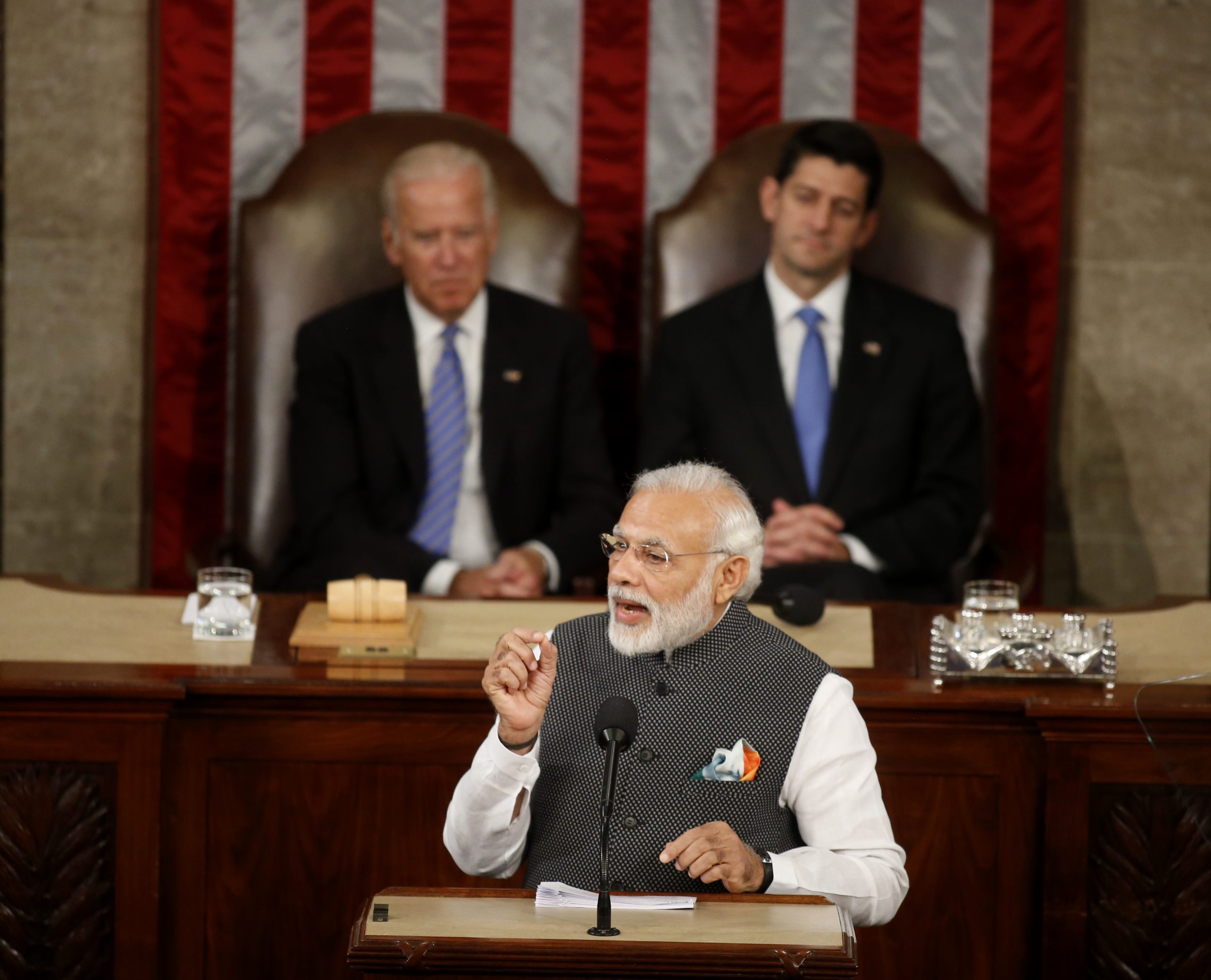
MAINTAINING MOMENTUM: US-INDIA SECURITY TIES

India has proudly striven to remain non-aligned and strategically autonomous since independence. This may be slowly changing under the Modi government, which is sending National Security Adviser Ajit Doval to Washington on Friday to meet US Defence Secretary James Mattis. Intelligence sharing, technology transfer and reciprocal access to bases – an unprecedented array of initiatives – will be on the agenda.
Security ties have bloomed in the past three years. US arms sales and joint exercises have multiplied, and last year Congress granted India ‘Major Defence Partner’ status – a unique designation that elevates India to a level on par with America’s closest partners. Mattis deems the relationship to be “of the utmost importance” while President Trump has invited Mr Modi to Washington.
Nonetheless, analysts on both sides fear that the Trump administration’s personnel changes and policy ambiguity could cause the strategic convergence to lose impetus. High-level agreements have thus far been impeded by bureaucratic bottlenecks, so Doval and Mattis will have to work hard to maintain momentum.
Dig deeper: The US and India: pivot to the subcontinent?
Enjoying this content? Get it delivered to your phone each morning.
A DESIGNER’S NIGHTMARE: THE WALL

Donald Trump’s signature border wall policy is racing well ahead of schedule. Full design proposals are due in on Friday and planning to award contracts is set to begin next month. Friday’s proposals will include quotes for the cost of the wall, estimates of which range from $12 billion to almost double this over the three-year construction period.
The challenge of funding such an ambitious project will be compounded by the risk of filibustering; Senate Minority Leader Chuck Schumer, a Democrat, threatened to shut down the government if the project is not stalled.
Political pushback will also target contracted firms. Officials in California and New York have introduced legislation to penalise businesses that work on the wall. Whether this risk is enough to discourage firms from vying for contracts is yet to be seen, particularly as those successful could have an advantage when competing for the $1 trillion funding earmarked for other infrastructure projects.
NO LAPTOPS ONBOARD: NEW RULES COME INTO FORCE

The US ban on large electronic devices on flights from 10 Middle Eastern airports comes into effect on Friday.
US authorities say the measures are aimed at preventing terrorists from smuggling “explosive devices in various consumer items”. But passengers are still allowed to check in – and therefore potentially weaponise – their devices. This has led some to claim the measures are not based on security considerations alone.
Indeed, the US ban targets the transit hubs of the big three Gulf airlines – Emirates, Etihad, and Qatar Airways – and could seriously impact demand for their US routes. US carriers have repeatedly petitioned their government to take action against these very airlines, claiming they unfairly benefit from state subsidies; in President Trump they might have found a sympathetic ear.
On the other hand, while the electronics ban may have some tangential benefits for US companies, it’s unclear whether Mr Trump would risk worsening relationships with key US allies over corporate profits.
HAPPENING ELSEWHERE…
Behemoth smartphone maker Samsung Electronics will hold a shareholder meeting under remarkable circumstances: the company’s heir and vice chairman, Jay Y Lee, has been in prison since February. Mr Lee and two other top executives found themselves ensnared in the far-reaching corruption scandal that claimed President Park’s political career. Shareholders will be anxious to find out what measures the firm has put in place to protect their business from sharing this fate.
French presidential candidate Marine Le Pen will visit Moscow to meet with lawmakers and possibly to shore up her campaign finances. Le Pen’s far-right party Front National historically has had close ties to the Kremlin.

